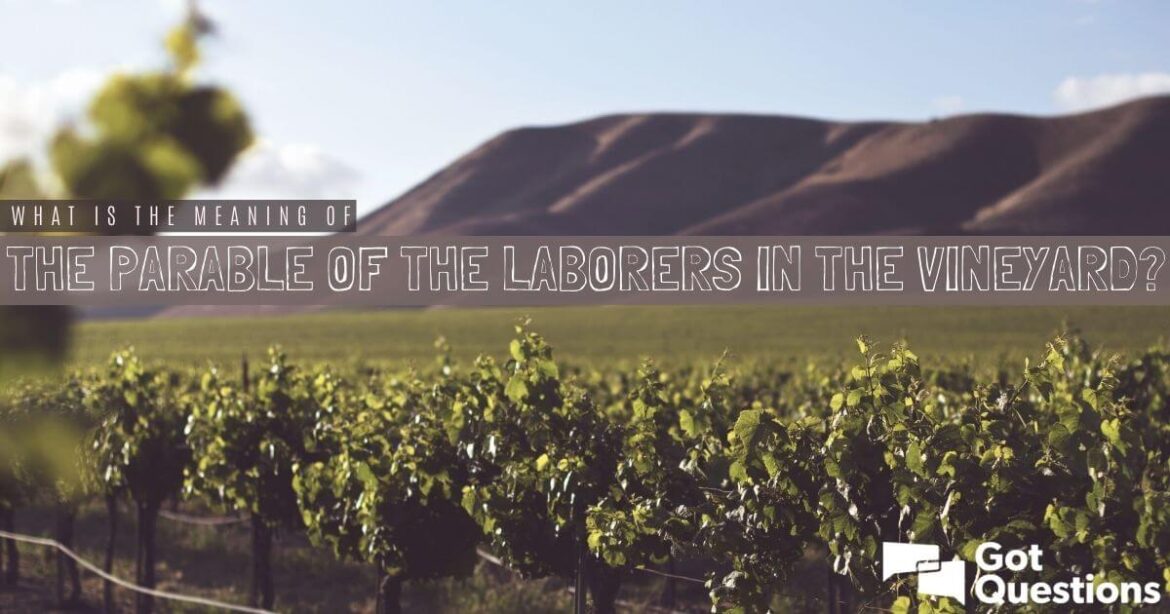The Parable of the Laborers in the Vineyard, found in the Gospel of Matthew 20:1-16, exemplifies the radical nature of God’s grace and challenges our conventional understanding of justice and fairness. At first glance, this parable appears to simply narrate an engaging story of workers hired at different times throughout the day. However, its implications run much deeper, urging readers to reconsider their notions of merit, entitlement, and divine generosity.
In the parable, a landowner hires laborers for his vineyard at various times: early in the morning, mid-morning, noon, late afternoon, and just before the day concludes. Despite the varying hours worked, all laborers receive the same wage—a denarius. This provokes jealousy and indignation among the first group of workers who feel entitled to a greater pay because they toiled longer. The landowner’s response is pivotal, revealing the heart of the parable: “Are you envious because I am generous?” This statement encapsulates the core message and serves as an invitation to explore deeper truths about divine grace.
From the outset, the landowner represents God and the vineyard symbolizes the Kingdom of Heaven. The diverse hiring times suggest that God’s call to repentance and redemption is extended to everyone, regardless of when they come to faith, which paves the way for a paradigm shift in how we perceive salvation. It challenges the assumption that the duration or intensity of labor translates into greater worthiness. Instead, it affirms that grace is not earned but given freely.
This parable radically subverts societal norms and religious metrics of achievement. Many individuals equate divine favor with earthly success, leading them to believe that their efforts dictate their worthiness before God. The laborers who began their day early relied on their perceived merit, which points to an underlying truth about human nature—we often want to quantify our efforts and compare them to others. Here, the parable invites readers to detach from such metric-driven thinking and embrace a more profound understanding of grace which is inherently unmerited.
Moreover, the theme of divine generosity is intricately woven throughout the narrative. It compels individuals to grapple with their notions of fairness. The workers who labored for the entire day expected a proportional reward, and their distress upon realizing that all received the same payment underscores an inherent tendency toward jealousy. This emotion is human, yet it highlights that our perspective on justice often lacks the divine lens of unconditional love. God’s grace defies human expectations and transcends our finite understanding of what is fair or equitable.
In revealing the landowner’s willingness to pay all laborers equally, the parable starkly illustrates that God’s love and grace are accessible to everyone—those who have been faithful for decades and those who have turned to Him at the last hour. This radical inclusivity beckons curiosity and a reassessment of our own faith journeys. Are we content with God’s generosity bestowed upon others, or are we ensnared by envy?
Additionally, the parable invites reflections on our identity as laborers in the vineyard. As individuals called to partake in spreading the Gospel, our contributions might vary widely. Some may serve in prominent positions, while others fulfill quieter, less recognized roles. However, the value of each laborer is not contingent upon the visibility of their contribution but upon their response to the call. The parable emphasizes that each role is vital in the Kingdom of Heaven and that actions, whether seen or unseen, hold intrinsic worth in the economy of God’s grace.
As one delves deeper, one can also observe the subtext regarding the Kingdom’s eschatological nature. In the biblical narrative, the Kingdom of Heaven is portrayed as a banquet, an invitation extended to all, illuminating God’s inclusive love. The laborers’ varying experiences reflect the different paths individuals may take toward faith, further affirming that salvation is always within reach. This eschatological hope invites believers to live with a sense of purpose, knowing that every moment spent in service, no matter how brief, contributes to the Kingdom’s flourishing.
Through the lens of this parable, one can glean the necessity of humility and outward focus in the Christian life. Those who feel holier or more deserving must recognize that grace is about abundance rather than scarcity. This understanding fosters not just gratitude but also a call to celebrate others’ successes and journeys. The laborers resent one another not simply due to salary but due to a misunderstanding of God’s boundless grace.
In conclusion, the Parable of the Laborers in the Vineyard embodies a qualitative shift in perspective—a call to cultivate an attitude of mercy and generosity that mirrors the divine nature. It invites readers to reconsider their assumptions about fairness, worthiness, and the nature of grace itself. Recognizing that God’s love does not conform to human scales of measurement can transform how individuals approach their own faith journeys and interactions with others. Ultimately, it inspires curiosity—prompting believers to ask how they, too, can embody this radical and all-encompassing generosity in their everyday lives.
As this parable reveals, God’s kingdom is not merely a reflection of earthly hierarchies but an intricate tapestry woven from diverse experiences, each marked by grace. The laborers may have arrived at different times, but they ultimately share in the same hope and future—all admitted into the bountiful vineyard of God’s love.



